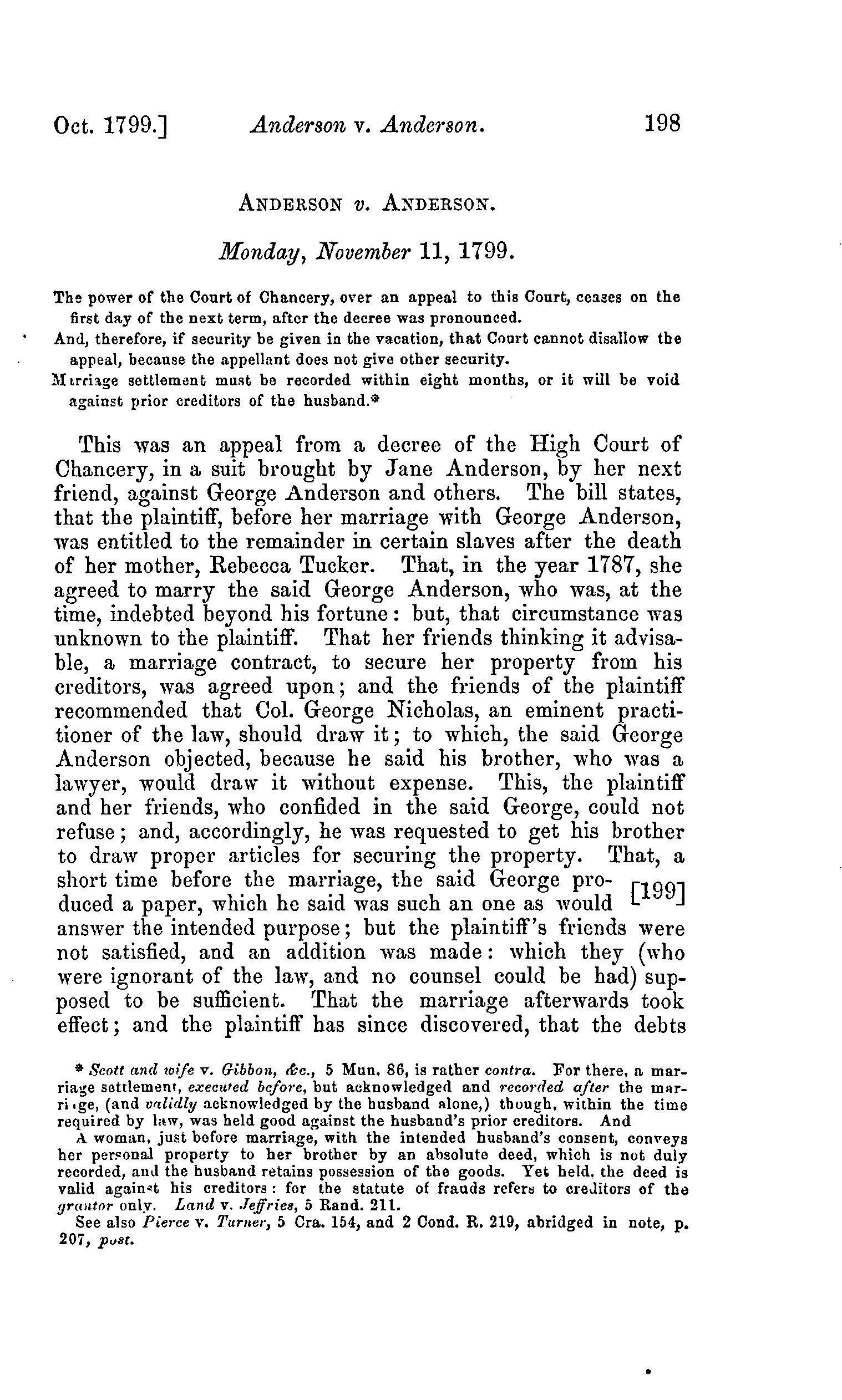Anderson v. Anderson

In Anderson v. Anderson, 6 Va. (2 Call) 198 (1799),[1] the Court determined whether the plaintiff's prenuptial agreement could protect her estate against her husband's creditors.
Background
Jane Anderson’s mother left her a small fortune in slaves. To protect her estate, Jane wanted to draft a prenuptial agreement before she married George Anderson. George Anderson told Jane that his brother could write the marriage contract and save her some money.Jane agreed and the contract was drafted, but due to George's negligence, never recorded. After Jane and George married, it was discovered that George had an enormous amount of debt. George's creditors, who were also his relatives, quickly took Jane's entire estate stating the prenup was insufficient and poorly drafted. Jane sued George and his creditors in the High Court of Chancery for the execution of the marriage contract to regain her estate.
The Court's Decision
On June 5th, 1794, Chancellor Wythe dismissed the case. Disagreeing with the decision, Jane Anderson sought to appeal, which required her to give two month's bond to the Court of Appeals. However, she failed to make bond. On August 26, 1794, Jane sought Wythe outside of court and, asked him to allow her to give bond, since she accidentally missed the deadline. Wythe allowed the request and Jane paid the bond. During the following September term, the Court of Chancery set aside Jane's ability to appeal until she could pay a second bond to the court by September 26th. This was due to a procedural rule limiting bonds to only one court term. Jane failed to pay the bond, but was permitted in March 1797 to give bond within two months on the condition that the Court of Appeals gave Wythe power to grant the appeal. The Court of Appeals ruled that Wythe ceased to have control of the case at the beginning of the September term. Referencing a statute, the Court of Appeals decreed that Wythe or any Court of Chancery could not use the powers of equity to override a statute, except in grievous cases. The Court went on to state that Wythe did not have the authority to request bond or how much bond was sufficient for Jane's case. Nevertheless, the Court determined that the appeal was properly granted in August 1794, and that the security was paid according to law. Turning to the merits of the case, the Court of Appeals noted a statute requiring that marriage settlements be recorded within eight months or it would be void. Although the Court noted the potential fraud in the case, it decreed that Jane failed to satisfy the statute and affirmed the ruling.
See also
References
- ↑ Daniel Call, Reports of Cases Argued and Adjudged in the Court of Appeals in Virginia, 2nd ed., ed. Lucian Minor (Richmond, VA: A. Morris, 1854), 2:198. George Wythe owned the first edition of this set.